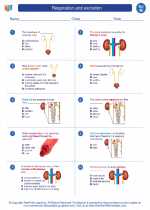Chinese Civilization
Chinese civilization is one of the oldest and most influential in the world. It has a rich history that spans thousands of years and has made significant contributions to culture, technology, philosophy, and more.
Key Periods
- Shang Dynasty (c. 1600-1046 BCE): Known for its use of oracle bones for divination and early Chinese writing.
- Zhou Dynasty (1046-256 BCE): Characterized by the development of the Mandate of Heaven and the concept of the "Son of Heaven."
- Qin Dynasty (221-206 BCE): Unified China under the rule of Qin Shi Huang, the first emperor of China, and began construction of the Great Wall.
- Han Dynasty (206 BCE-220 CE): Expanded the empire, established the civil service system, and saw advancements in papermaking and the invention of the seismoscope.
- Tang Dynasty (618-907 CE): Known for its flourishing of poetry, art, and literature, as well as advancements in technology and trade along the Silk Road.
Contributions to Civilization
Chinese civilization has made numerous contributions to the world, including:
- Confucianism: A philosophy emphasizing morality, family values, and social harmony.
- Taoism: A philosophy advocating for simplicity, naturalness, and harmony with the Tao (the Way).
- Inventions: Chinese civilization gave the world inventions such as paper, printing, gunpowder, the compass, and more.
- Art and Culture: Chinese art, calligraphy, painting, and literature have had a profound impact on global culture.
Study Tips
When studying Chinese civilization, it's helpful to:
- Take notes on key dynasties and their major achievements.
- Understand the impact of Confucianism, Taoism, and other philosophical traditions.
- Explore the technological advancements and inventions that originated in ancient China.
- Examine the influence of Chinese art, literature, and culture on the world.
[Chinese Civilization] Related Worksheets and Study Guides:
.◂Science Worksheets and Study Guides Eighth Grade. Respiration and excretion
Study Guide Respiration and excretion
Respiration and excretion  Worksheet/Answer key
Worksheet/Answer key Respiration and excretion
Respiration and excretion  Worksheet/Answer key
Worksheet/Answer key Respiration and excretion
Respiration and excretion  Worksheet/Answer key
Worksheet/Answer key Respiration and excretion
Respiration and excretion  Vocabulary/Answer key
Vocabulary/Answer key Respiration and excretion
Respiration and excretion  Vocabulary/Answer key
Vocabulary/Answer key Respiration and excretion
Respiration and excretion  Vocabulary/Answer key
Vocabulary/Answer key Respiration and excretion
Respiration and excretion  Vocabulary/Answer key
Vocabulary/Answer key Respiration and excretion
Respiration and excretion 

 Worksheet/Answer key
Worksheet/Answer key
 Worksheet/Answer key
Worksheet/Answer key
 Worksheet/Answer key
Worksheet/Answer key
 Vocabulary/Answer key
Vocabulary/Answer key
 Vocabulary/Answer key
Vocabulary/Answer key
 Vocabulary/Answer key
Vocabulary/Answer key
 Vocabulary/Answer key
Vocabulary/Answer key
